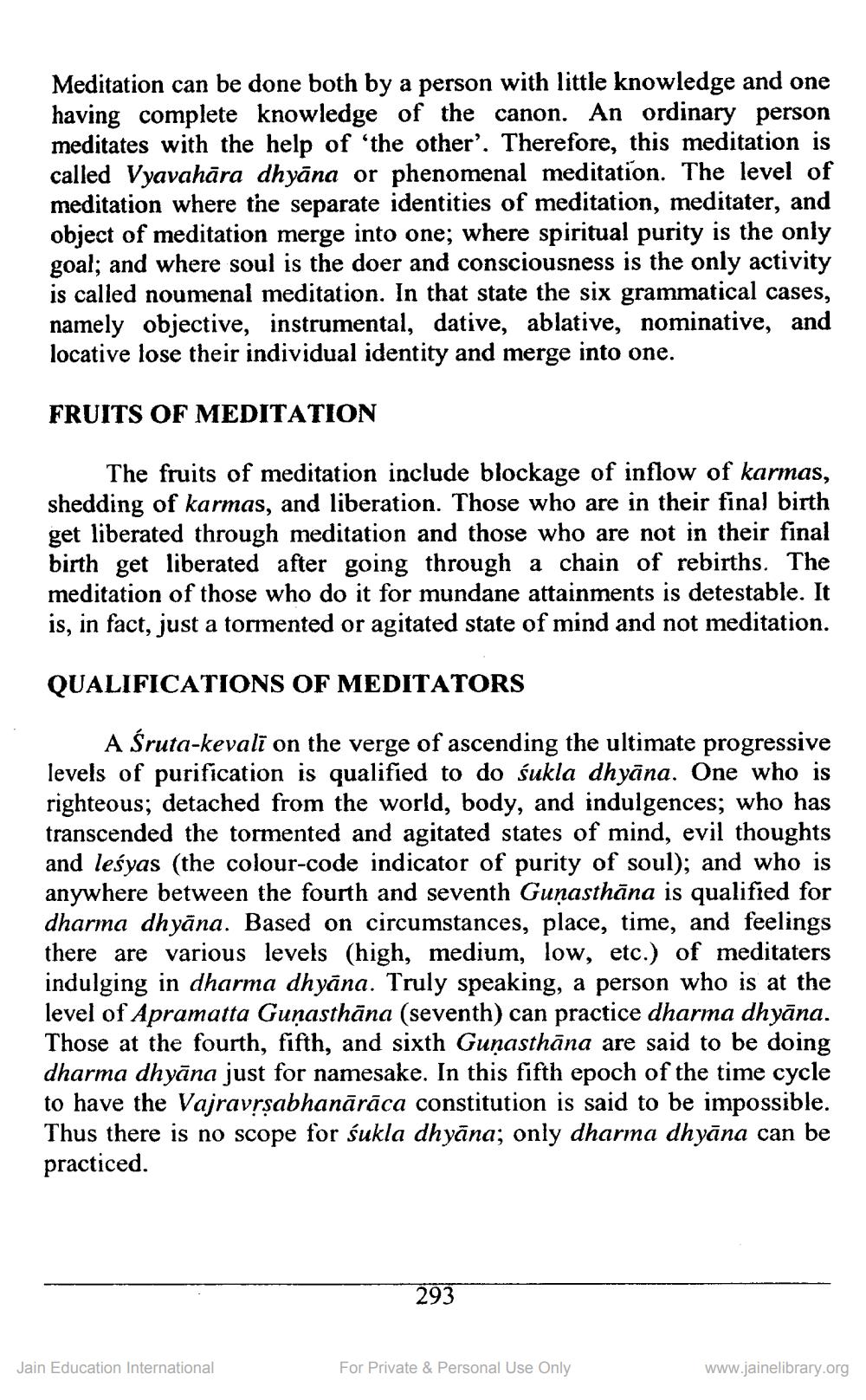________________
Meditation can be done both by a person with little knowledge and one having complete knowledge of the canon. An ordinary person meditates with the help of the other'. Therefore, this meditation is called Vyavahāra dhyāna or phenomenal meditation. The level of meditation where the separate identities of meditation, meditater, and object of meditation merge into one; where spiritual purity is the only goal; and where soul is the doer and consciousness is the only activity is called noumenal meditation. In that state the six grammatical cases, namely objective, instrumental, dative, ablative, nominative, and locative lose their individual identity and merge into one.
FRUITS OF MEDITATION
The fruits of meditation include blockage of inflow of karmas, shedding of karmas, and liberation. Those who are in their final birth get liberated through meditation and those who are not in their final birth get liberated after going through a chain of rebirths. The meditation of those who do it for mundane attainments is detestable. It is, in fact, just a tormented or agitated state of mind and not meditation.
QUALIFICATIONS OF MEDITATORS
A Śruta-kevalī on the verge of ascending the ultimate progressive levels of purification is qualified to do śukla dhyāna. One who is righteous; detached from the world, body, and indulgences; who has transcended the tormented and agitated states of mind, evil thoughts and leśyas (the colour-code indicator of purity of soul); and who is anywhere between the fourth and seventh Guņasthāna is qualified for dharma dhyāna. Based on circumstances, place, time, and feelings there are various levels (high, medium, low, etc.) of meditaters indulging in dharma dhyāna. Truly speaking, a person who is at the level of Apramatta Gunasthāna (seventh) can practice dharma dhyāna. Those at the fourth, fifth, and sixth Guņasthāna are said to be doing dharma dhyāna just for namesake. In this fifth epoch of the time cycle to have the Vajravrşabhanārāca constitution is said to be impossible. Thus there is no scope for śukla dhyāna; only dharma dhyāna can be practiced.
293
Jain Education International
For Private & Personal Use Only
www.jainelibrary.org




